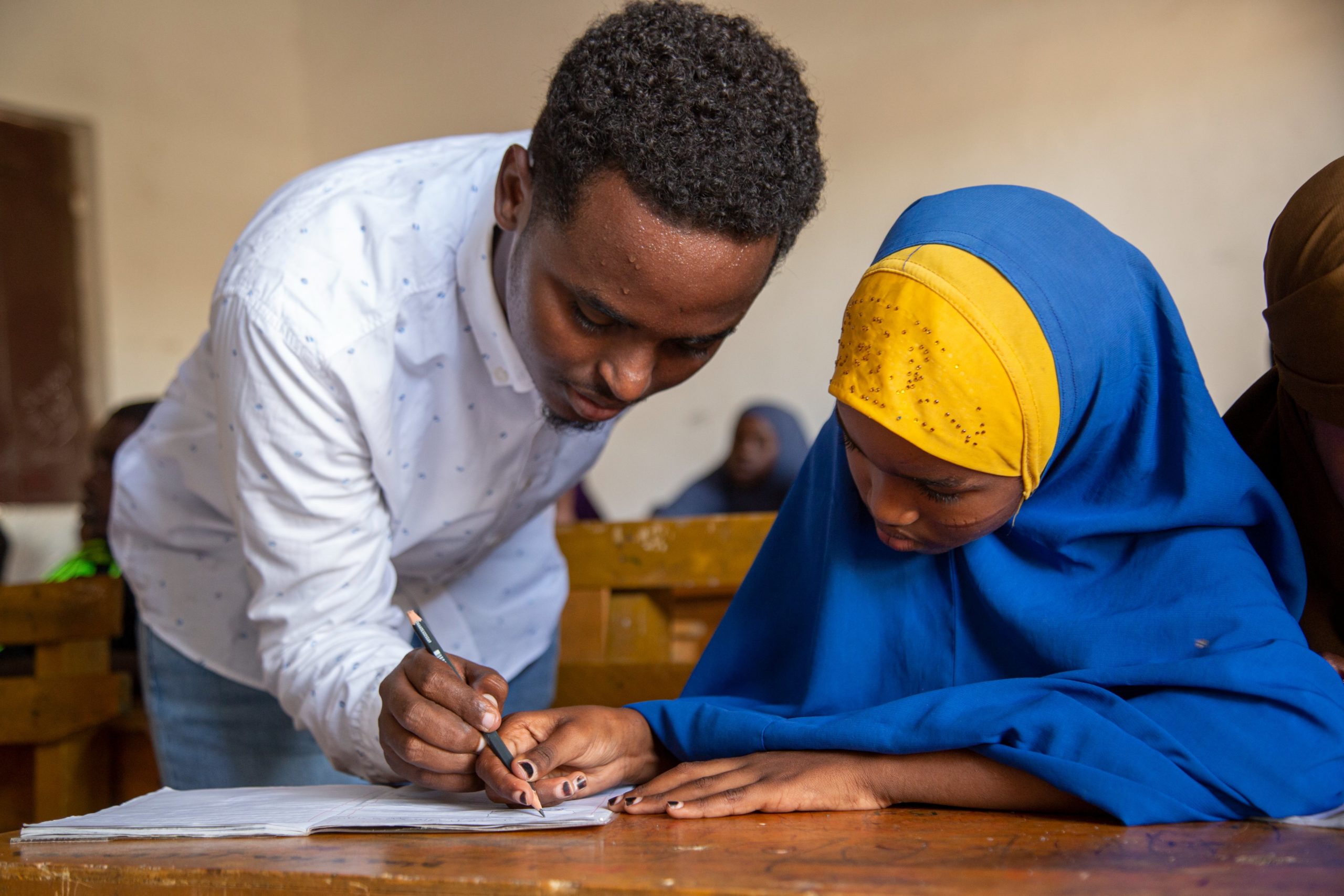U.S funded basic literacy programme to reach 35,000 children in Somalia

GOOBJOOG NEWS|MOGADISHU:A basic literacy programme funded by the USAID will this year reach 35,000 children who have either dropped out of school or have never attended school in Somalia.
The US embassy in Mogadishu announced Wednesday in marking the International Literacy Day that the Bar ama Baro (Teach or Learn) will reach the children in South West State, Jubaland, Hirshabelle, and the Benadir Regional Authority, raising the number of children enrolled in primary school by 40 percent in these areas in just one year.
The U.S. Chargé d’Affaires at the embassy in Mogadishu Colleen Crenwelge, U.S. Chargé d’Affaires said investment in education was key to prosperity for Somalia.
“Reading is perhaps the most important skill a child can acquire. It unlocks opportunities for lifelong learning and is the foundation on which all other skills are built,” said Crenweldge. “Investments in education ultimately will help ensure a prosperous, peaceful future for Somalia, and the United States is proud to contribute to that future.”
Minister of Education, Culture, and Higher Education Abdullah Haji remarked, “Ensuring all Somali children have access to quality education is a top priority for the government of Somalia. We value our partnership with USAID, which enables us to reach more Somali children with quality education.”
In partnership with the Ministry of Education, Culture, and Higher Education and the Federal Member States, Bar ama Baro developed a condensed version of Somalia’s formal curriculum and created textbooks covering grades 1-4. To date, Bar ama Baro has published and distributed more than 70,000 textbooks and trained nearly 725 teachers and 185 head teachers.
Through Bar ama Baro, USAID will reach communities in South West State, Jubaland, Hirshabelle, and the Benadir Regional Authority, raising the number of children enrolled in primary school by 40 percent in these areas in just one year. Over the next three years, Bar ama Baro will provide more than 100,000 children and youth aged 9-16 with quality accelerated basic education.